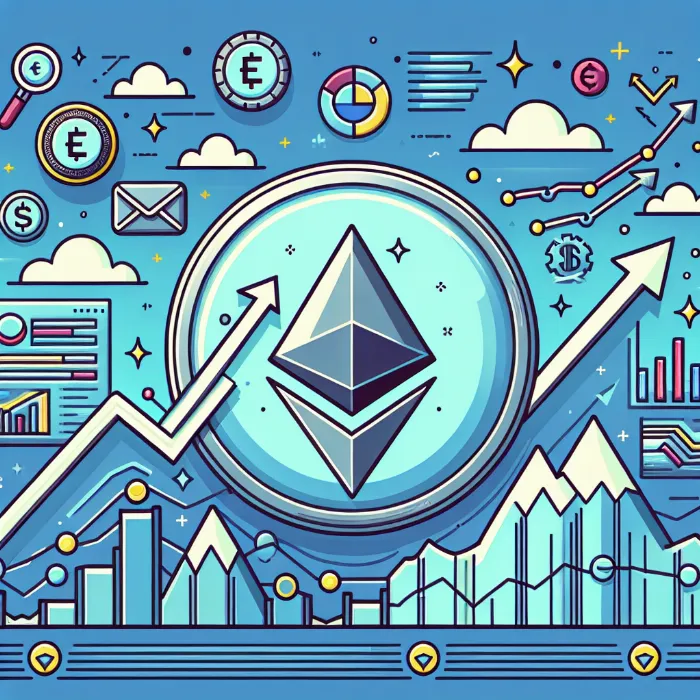Gulf stock exchanges saw significant drops following an escalation in retaliatory air strikes between Iran and Israel. The conflict unnerved the region’s investors, prompting fears of disruptions to oil exports. Oil prices surged approximately 7% last week, triggering steep index losses—Saudi Arabia’s benchmark fell 1%, Qatar’s dropped 3.2%, and Kuwait plunged 4.6%. Egypt’s blue‑chip index declined 4.6%, marking its sharpest fall in more than a year
🌍 Gulf Markets Tumble Amid Iran–Israel Escalation
Tensions in the Middle East have intensified to a boiling point, sending shockwaves through global financial markets and causing significant turmoil in Gulf stock exchanges. A sharp escalation between Iran and Israel has prompted widespread concern among investors, driving oil prices upward and triggering a sharp retreat in equities across the region.
As regional tensions mounted, traders shifted swiftly into risk-off mode, reducing exposure to equities and moving capital into safer assets such as gold, U.S. Treasuries, and the dollar. The geopolitical crisis has created a volatile environment that is likely to remain unpredictable in the near term.
⚔️ Escalation Timeline: Retaliatory Strikes
The recent deterioration in diplomatic relations turned into direct military confrontation over the weekend. Israel launched multiple strikes on what it claimed were nuclear and missile facilities in Iran. These strikes were aimed at delaying or dismantling Iran’s nuclear capabilities. In response, Iran launched counterattacks using long-range missiles and drones targeting Israeli military and civilian infrastructure. Although both sides reported heavy damage, the broader global fear now lies in how this confrontation could affect critical energy supply routes.
💥 Oil Prices Surge as Supply Fears Intensify
One of the most immediate and visible effects of the conflict has been the dramatic rise in oil prices. Brent crude spiked by nearly 7%, climbing to its highest level in several weeks. This sharp upward move was driven by fears that the Strait of Hormuz—a key transit route for nearly 20% of the world’s oil supply—could become compromised or entirely shut down if tensions escalate further.
Oil traders and analysts are concerned that a prolonged conflict could restrict flows from major exporters such as Saudi Arabia, the UAE, Iran, and Iraq. Given the narrowness of the Strait and its strategic importance, even a limited naval blockade or targeted strike could disrupt global energy supplies. This concern has led energy-focused investors to take bullish positions on crude, while oil-importing economies are beginning to reassess their inflation and supply-chain exposure.
📉 Gulf Stock Exchanges React With Sharp Declines
The financial fallout was felt almost immediately across the Gulf Cooperation Council (GCC) markets:
Saudi Arabia: The Tadawul index fell sharply at the open, initially dropping 3.6% before recovering slightly to end the day about 1% lower. Energy and banking stocks were hit hardest.
Qatar: The QSE index dropped between 3% and 4%, weighed down by losses in financials and shipping.
Kuwait: The market recorded a significant plunge of over 4.5%, its biggest single-day loss this year. Airline and logistics companies led the decline due to regional airspace concerns.
Egypt: The EGX30 index slid 4.6%, its most severe drop in more than a year. Investors dumped holdings in response to capital outflow fears and currency devaluation risks.
UAE Markets: Dubai and Abu Dhabi saw declines of roughly 2%, with property and tourism-related stocks bearing the brunt of investor nervousness.
This across-the-board selloff reflects growing concerns that the Israel–Iran conflict could become a protracted and regionally destabilizing crisis.
✈️ Regional Airspace Closures Hit Aviation and Logistics
In response to the rising threat, several Middle Eastern nations closed parts of their airspace. This included areas over Iraq, Jordan, Iran, and Israel. Airlines were forced to reroute or suspend flights, creating operational headaches and pushing up costs. Shares of Jazeera Airways in Kuwait nosedived by nearly 18%, while other carriers in the Gulf, already under pressure from rising fuel costs, recorded 4–6% declines.
The aviation sector, already coping with post-pandemic recovery challenges, faces renewed disruption from the potential risk of direct strikes, anti-air defenses, and delayed logistics in the region. International carriers with routes through the Middle East are also adjusting their flight schedules and hedging their fuel purchases.
🛡️ Surge in Safe-Haven Assets
As risk sentiment deteriorated, investors sought shelter in traditional safe havens. Gold prices climbed over 1% to reach multi-month highs. The U.S. dollar strengthened against most emerging market currencies, including the Egyptian pound and Turkish lira. Treasury yields fell, reflecting higher demand for U.S. government debt amid uncertainty.
Volatility also spiked. The VIX, a popular gauge of U.S. market fear, reached its highest level in three weeks. Traders began pricing in wider risk premiums for energy-related assets and emerging markets.
📊 Economic and Inflationary Ripple Effects
Beyond the immediate market turmoil, there are broader concerns about inflation and global growth. Rising oil prices could feed into already elevated inflation in several economies, especially in Europe and South Asia. Central banks may be forced to reevaluate their interest rate trajectories. While some policymakers were previously leaning toward rate cuts, this latest energy shock could delay or reverse those expectations.
Additionally, a prolonged crisis could negatively impact consumer confidence, global trade routes, and the manufacturing sector—especially if shipping through the Persian Gulf is disrupted.
📈 Investor Strategy and Forward Outlook
The geopolitical environment is now a central market narrative. Institutional investors are reviewing their Middle East exposure, hedging oil-sensitive sectors, and diversifying away from regional equities. Asset managers are favoring a mix of inflation hedges, commodities, and U.S. dollar–denominated assets until clarity emerges.
In the near term, any developments—whether diplomatic breakthroughs or further military strikes—will move markets significantly. Traders are watching for signs of de-escalation, including ceasefire talks, third-party mediation, or international sanctions. Until such signals appear, the markets are expected to remain highly volatile.
🔚 Conclusion
The Israel–Iran conflict has dealt a heavy blow to Gulf markets, reawakening global fears about regional instability and energy security. With oil prices soaring, airspace restrictions tightening, and equity indices sliding, the financial world is once again reminded of how deeply interconnected geopolitics and markets have become. The coming days will be crucial in determining whether this crisis deepens or stabilizes. For now, caution reigns supreme.

















Comments 0